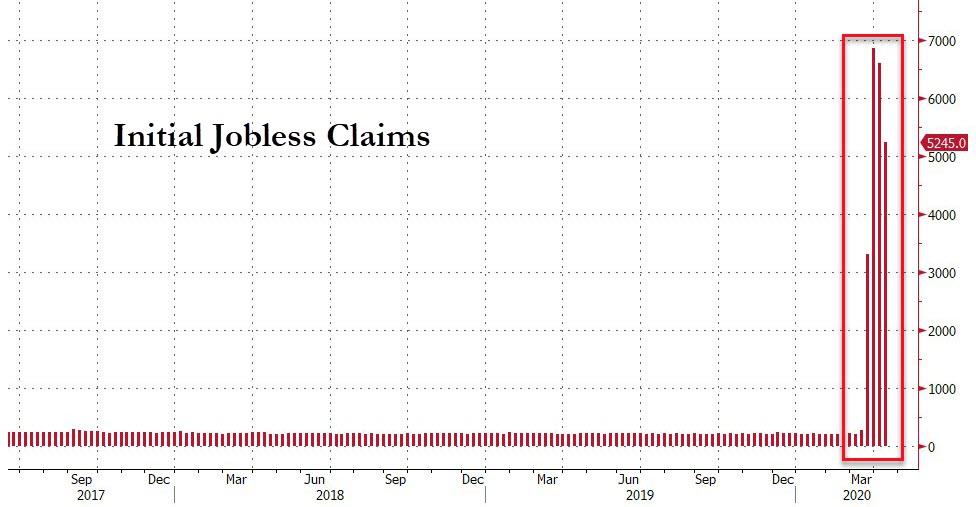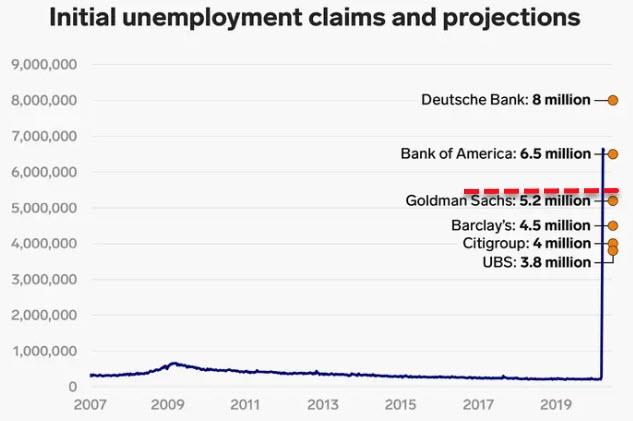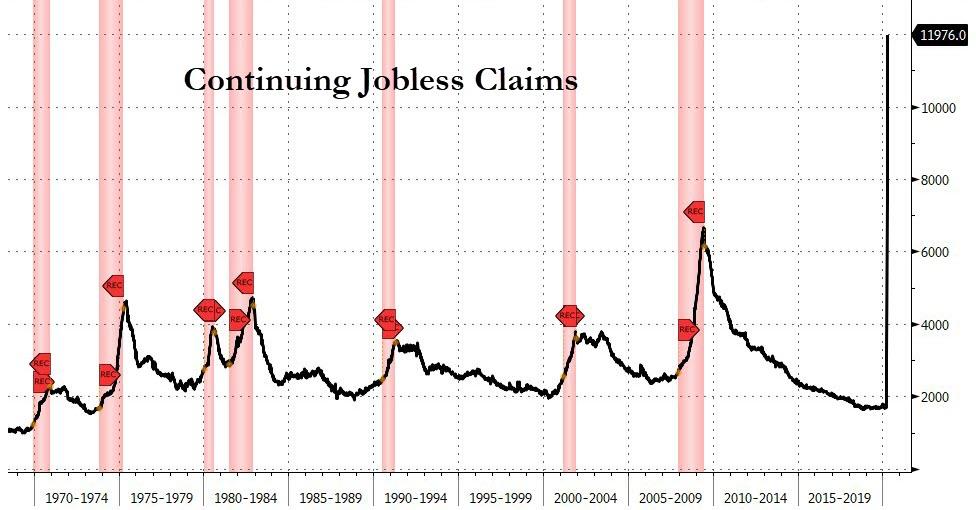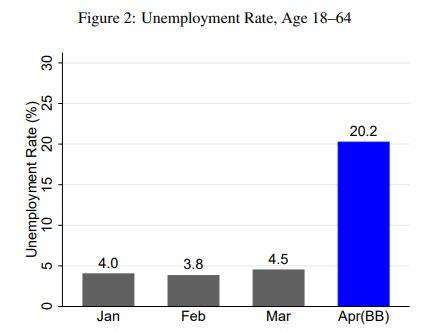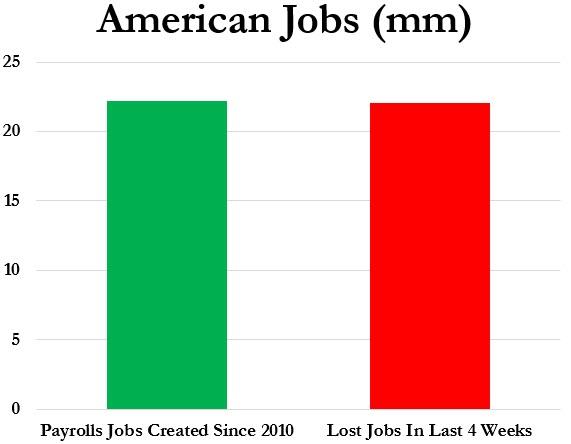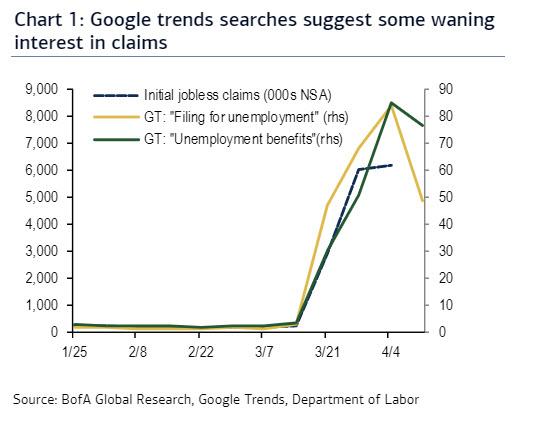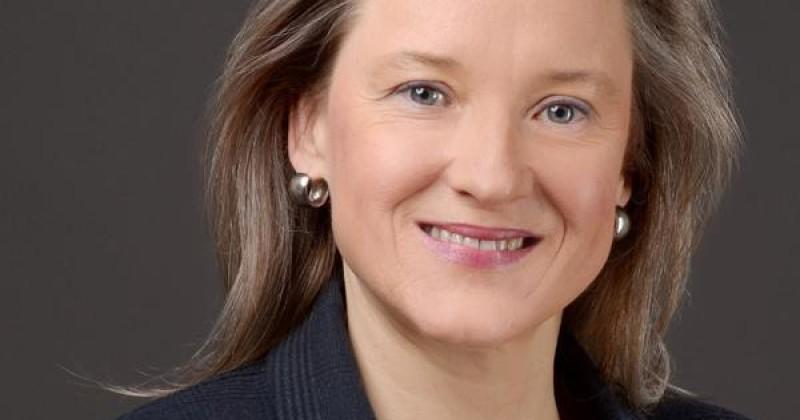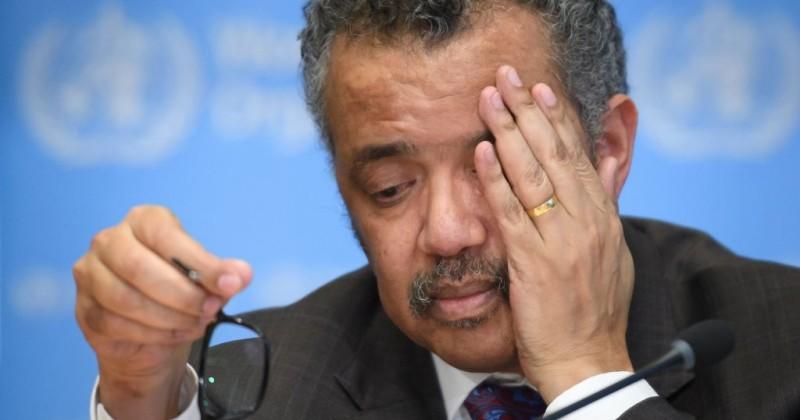Political figures on the left, ranging from former first lady Michelle Obama to House Speaker Nancy Pelosi, are calling for the presidential election on Nov. 3 to take place through mail-in voting due to the coronavirus pandemic.
Hans von Spakovsky, a senior legal fellow in The Heritage Foundation’s Edwin Meese III Center for Legal and Judicial Studies, joins the podcast to explain why mail-in voting could result in voter fraud. Listen to the podcast below or read the lightly edited transcript.
Also on today’s show:
- New York Gov. Andrew Cuomo says the “worst is over” as New York deaths cross 10,000.
- The Supreme Court has announced that it will hear 10 oral arguments by telephone in May.
- South Dakota will be the first state to run a statewide clinical trial of a possible coronavirus treatment.
The Daily Signal Podcast is available on Ricochet, Apple Podcasts, Pippa, Google Play, or Stitcher. All of our podcasts can be found at DailySignal.com/podcasts. If you like what you hear, please leave a review. You can also leave us a message at 202-608-6205 or write us at letters@dailysignal.com. Enjoy the show!
Virginia Allen: I am joined by Hans von Spakovsky, a senior legal fellow in The Heritage Foundation’s Edwin Meese III Center for Legal and Judicial Studies and a presidential Trump appointee to the Presidential Advisory Commission on Election Integrity. Hans, thank you so much for joining me today.
Hans von Spakovsky: Sure. Thanks for having me.
Allen: Now, the coronavirus is affecting a lot of local and state elections. Many primaries we’ve already seen have been postponed. But the biggest topic of debate right now is really the presidential election in November.
Some want to see mail-in voting be used during that election really solely as the way that people would vote. And that sounds kind of reasonable at first.
We are coming out of this global pandemic. And, obviously, for some people, that’s frightening even this fall to think about gathering and large groups, especially for those who are older or might be immune compromised.
So, at first glance it might be like, well, mail-in voting is not such a bad idea. But what do you think about mail-in voting?
Von Spakovsky: It is something we should only go to if we were absolutely required. And I kind of doubt that the entire country is still going to be shut down on Nov. 3, the date of the general election.
Look, the problem with mail-in voting is basically this, in every state you can vote by absentee ballot, particularly if you’re ill or disabled. And we obviously need that.
But all-mail elections have all kinds of security problems. And the reason is very simple, these are the only kind of ballots that are being voted out of sight and out from under the supervision of election officials.
That’s why it is, unfortunately, easy to not just engage in fraud in those kinds of elections, but it’s also easy for voters to be intimidated. And that’s a cause for concern and should be a cause for concern for anyone interested in having an election process that is fair and has good security too.
Allen: … Former first lady Michelle Obama is really one of those strong voices that is advocating for mail-in voting. And she recently said, “Americans should never have to choose between making their voices heard and keeping themselves and their families safe. Expanding access to vote by mail, online voter registration, and early voting are critical steps for this moment and they’re long overdue.”
What’s your response to former first lady Michelle Obama?
Von Spakovsky: Well, she doesn’t seem to realize the contradiction of what she just said. She says we should have all-mail voting because you shouldn’t have to endanger your safety. Well, if that’s the case, why does she want increased access to early voting?
Early voting is something that about two-thirds of the states have where they open up polling places several weeks before Election Day.
Well, why would she want early voting increased if, in fact, she’s worried about people catching the coronavirus by going to a polling place? That doesn’t make sense. That makes it look like what she’s talking about is basically a partisan objective to increase early voting sites around the country.
Of course, the problem with that is early voting has been shown to actually hurt turnout. And second, it has people voting weeks before Election Day, which often means they can miss important news connected with their choice of who they have voted for.
Anybody who doubts that, just take a look at what happened in the Super Tuesday primary at the beginning of March where you had major candidates—Sen. [Amy] Klobuchar, former Mayor Pete Buttigieg—[drop] out two days and one day before the Super Tuesday primary, and yet hundreds of thousands of individuals had already cast ballots for them in early voting states.
They couldn’t call those ballots back. In essence, you had hundreds of thousands of people who wasted their vote on candidates who had dropped out. But, because of early voting, there was nothing they could do about that.
Allen: Wow, wow. So, we see early voting really, traditionally, just complicates things even more.
Von Spakovsky: It does. And it leads to disenfranchisement of voters. She says also, we need expanded access to mail-in ballots.
I don’t know what she’s talking about when, like I said, in every state you can already vote by absentee ballot if you can’t make it to the polls. And certainly, even in the states that require an excuse for absentee balloting, all election officials are going to consider this coronavirus threat to be a sufficient reason to use an absentee ballot.
Allen: Let’s say I’m a 75-year-old woman and I’m completely capable of going out to the polls, I just don’t feel comfortable. Would current election law allow me to still vote absentee?
Von Spakovsky: Well, it probably would if election officials and health officials consider that the coronavirus is still a threat. Although, actually, in many states, folks who are over a certain age, often the age of 65, are automatically allowed to use absentee ballots anyway. So, again, it’s not really a problem.
Look, what she is really talking about, what she and other liberals are really talking about is there doesn’t need to be an expanded access to absentee ballots and all-mail voting because you’ve already got access to it. What they’re talking about is getting rid of the safety precautions that states have. And I can just give you a quick example of that.
Lawsuits have already been filed in various states, places like New Mexico, this was put into [House Speaker Nancy] Pelosi’s coronavirus bill, to require states to automatically mail out absentee ballots to all registered voters rather than having voters send in a signed written request for an absentee ballot.
That’s extremely dangerous. Why? Because voter lists are in notoriously bad shape all over the country. They are filled with the names of voters who have moved away. Voters who are registered more than once. Voters who have died but are still on the list.
Mailing out a ballot means that literally tens of thousands, if not hundreds of thousands, of ballots will end up arriving at people’s homes for folks who no longer live there or for people who are registered at multiple times. They’re going to get more than one ballot. Well, how many of those are going to get voted?
And, in places that allow ballot harvesting—and that, again, is something that Pelosi wanted to mandate everywhere—party activists, candidates, political guns for hire, they will be going through neighborhoods trying to collect those absentee ballots to make sure they get voted. And that’s why those kinds of procedures are dangerous.
Allen: Yeah. Let’s talk for a second about what happened in Wisconsin last week. Many voters, reportedly, they waited in very long lines. And, while people were trying to maintain that social distance, it was a lot of people in one place all outside during the coronavirus pandemic together. Do you think that Wisconsin handled their election the correct way?
Von Spakovsky: I think the problem in Wisconsin was federal courts and others trying to come in and tell them how to handle their election, rather than local officials making their own decision on it.
I would point out that Wisconsin is not one of the epicenters of the coronavirus. They’ve had very few cases of it. The vast majority of people there were not at risk.
And the state did allow an extension of time for anybody who wanted to vote by absentee ballot, as long as it was postmarked by Election Day. They still had another week for it to get to election officials, either by mail or by folks personally delivering it. So, I actually think they did just fine in handling this election.
Allen: OK. That’s really interesting to hear your perspective.
Now, as you were talking about earlier, we’re seeing that there’s kind of increasing movement on the left to, obviously, push for just kind of more avenues of voting by mail and so forth.
Sen. Amy Klobuchar and [Sen.] Ron Wyden have introduced a bill that would make it significantly easier to vote. The bill would allow anyone to vote by mail and would give people at least 20 days to vote in-person before the Election Day. What are your kind of initial thoughts on this legislation?
Von Spakovsky: Well, there’s no need for it because, as I said, states already allow absentee balloting. But her provision, the one with Sen. Wyden, has all these very bad provisions in it that would risk the security of the election process.
To give you an example, look, in states, they don’t start counting absentee ballots and early votes until the end of Election Day at the same time they count their ballots. And the reason for that is common sense.
You don’t want to start counting ballots two weeks before the election. Because, if those results are leaked out, if they were leaked out to the public, it may deter people from going and voting if they hear that the candidate they were interested in is losing in the early tabulations.
And, if it’s leaked out to candidates or political parties, it might give them inside information to change their strategy to see if they can change the outcome of the election.
Yet, Klobuchar and Wyden’s bill would force states to start processing and tabulating absentee ballots and early votes two weeks before election day. Now, why in the world would you put a provision like that in?
Also, she forces all states to allow early voting. Again, if your whole concern is the coronavirus, why are you forcing states that don’t want early voting? Why are you forcing them to to do that?
Allen: That seems like it would just kind of be a lose-lose, whether you’re conservative or liberal. Do you have a sense of kind of why we would see senators on the left really pushing for, like you said, that early tabulation and counting of votes?
Von Spakovsky: I think they believe that their political consultants will be able to take advantage of that and change strategy, change out their get out to vote activities in races where they’re losing in order to manipulate the election results. And I don’t think they have a very good objective there.
Another thing, by the way, her bill does is … legalize vote harvesting in all states. So, even in states that ban vote harvesting, they would now have to allow [it]. Again, that’s a bad idea.
For folks who don’t know what that means, look, in every state you can either mail back your absentee ballot that you’ve completed or a member of your family can return it. But, in states that allow vote harvesting, they say anybody can pick up your completed ballot at your home and deliver it to election officials.
That means that candidates, political parties, campaign organizations can come by your house to pick up your absentee ballot and deliver it.
But, the problem with that, of course, is you’re giving something very valuable, a very valuable commodity, a ballot into the hands of individuals who have a stake in the outcome.
And we have lots of cases involving absentee ballot fraud in our database at The Heritage Foundation. We have a great database. It now has almost 1,300 proven cases of voter fraud.
We have cases in there where sometimes voters get intimidated in their homes by party activists and others to vote in a particular way. And, at other times, these party activists take the ballots and fill them out instead of the voter filling them out.
That’s what happens if you allow vote harvesting, which Sen. Klobuchar and Sen. Wyden want to make legal everywhere.
Allen: So, how many states allow that voter harvesting right now?
Von Spakovsky: It’s a little bit under 30 states. Other states ban it. A good example is North Carolina. North Carolina bans vote harvesting. And, if folks are interested in why that’s a good idea, all they have to do is look at the 2018 congressional elections in North Carolina, the 9th Congressional District.
Folks may recall, that was the only contested congressional race in the country in 2018. The race was overturned by the state election board because one of the candidates hired a notorious local political consultant with a very bad reputation who engaged in illegal vote harvesting.
The evidence showed that they forged voter signatures, they filled out ballots, they changed votes when they went and collected those absentee ballots from voters in their homes.
Allen: Wow. Now, as you’ve mentioned, Heritage has a wonderful resource, the voter fraud database, which you help to run. So, when you look at past cases of voter fraud, what percentage of those take place through mail-in voting?
Von Spakovsky: I don’t have those numbers in front of me. But I will tell you that a very large percentage of the cases involve absentee ballot fraud.
Allen: Wow, wow. And is this really more of a state issue? I mean, can the federal government really tell states how they can and can’t hold elections?
Von Spakovsky: They shouldn’t. No.
Look, we have a very decentralized election system. It’s the most decentralized of all the Western democracies. That was intentional by the Framers and Founders because they said they didn’t think it was a good idea for the federal government, Congress, and the White House to be able to run federal elections, because then they might change the rules to make sure that they stayed in office.
So, elections are administered almost entirely by the states. And that’s the way it should stay. We should not have the federal government coming in and telling the states, “Here are the rules,” for example, “for absentee ballots,” or, “You have to have all-mail elections from now on.” That’s a decision states should make on their own.
Allen: So, let’s say that five or 10 states decide, “Come November, we feel more comfortable holding the election through mail.” And the other 45 or 40 states decide, “No. We’re going to have a traditional election and have people go to polling places and vote.” Do you think that would potentially be a good compromise? How would that kind of affect the election?
Von Spakovsky: Well, I do think every state ought to make their own decision about it. But, if states decide to have all-mail election, I hope they will put in the right kind of rules to minimize the opportunity to engage in fraud rather than putting in rules that will make it easy to commit. And there are certain ways to do it and certain ways that it should not be done.
Allen: What is really the best formula for a fair election? What is needed to ensure that those who vote are voting only once, and that they’re living, and that there are legitimate votes voting in the correct states?
Von Spakovsky: Well, there is a whole series of recommendations that The Heritage Foundation has made on it. One of the most basic ones is you should have to show a government-issued photo ID when you vote, both in person and/or through the absentee balloting process.
States should require proof of citizenship when you register to vote because there’s plenty of cases that we have shown of noncitizens registering and illegally voting in the country.
And states need to be maintaining the accuracy of their voter rolls, regularly checking to make sure people who are dead have been taken off, and regularly checking with other states to find individuals who are registered in more than one state to ensure, again, that you don’t have double voting, like one of the cases we just added to our database of a student at the University of New Hampshire who was found guilty of voter fraud for voting in both New Hampshire where he was going to school and in his home state of Massachusetts.
Allen: Interesting. And how big do you really see this debate becoming of mail-in voting … over the next few months? Do you think that those on the left, like Speaker of the House Nancy Pelosi and other Democrats, [will] kind of start to back off of this? Or is this really going to be a fight and a debate until the end?
Von Spakovsky: No. I think it’s going to be a big fight and a big debate until the end. Because, when you look at the provisions, for example, that were in her bill, they weren’t intended to just affect this election. They were intended for this and all future elections.
So, they are seeing this as an opportunity to put in all these what I consider to be a dangerous and bad changes in election rules in place.
And, if they’re not successful in the legislature, I’m afraid they are then going to go to the courts, as has already started happening, to get the courts to force through changes that they can’t get through the democratic process, which in itself is very anti-democratic doing it that way.
Allen: Let’s switch gears just for a moment. This past weekend, Virginia Gov. Ralph Northam signed … legislation that repeals Virginia’s voter ID law, among other things.
And you mentioned voter ID and how important that is. But what would you say in response to those who say voter ID really limits those who can vote in elections and disproportionately hurts low-income Americans?
Von Spakovsky: We know that’s not true. The reason we know that’s not true is that the first laws requiring a government-issued photo ID to vote went in place back in 2008 in Georgia and Indiana. And then, a number of other states passed it.
So, in fact, we have 10 years worth of data, turnout data, on a number of different states that we can look at. And all of that data shows that voter ID requirements do not keep people out of the polls. In particular, they do not keep, for example, minority voters out of the poll, which is a claim that’s constantly made.
Part of the reason for that, of course, is that Americans overwhelmingly already have an ID. Plus, every state that has put in a requirement like this has also put in a provision saying, “If you don’t already have an ID, we will provide one to you for free.”
So, we’ve got all of the data we need to show it does not keep people out of the polls.
Allen: Yeah. Well, we really encourage our listeners to check out some of that data and check out some of the resources that we have on The Heritage Foundation website, such as the voter fraud database. And, Hans, we just really appreciate your time today and your insight on this subject.
Von Spakovsky: Sure. Thanks for having me. And I hope the folks that are still in the states who haven’t held their primaries yet either get out and vote or request an absentee ballot and get it in.
Allen: Absolutely. Thank you so much, Hans.
Von Spakovsky: Thank you.
The post The Left Is Calling for Mail-In Voting. Here’s Why It’s a Bad Idea. appeared first on The Daily Signal.
via The Daily Signal
Enjoy this article? Read the full version at the authors website: https://www.dailysignal.com/





